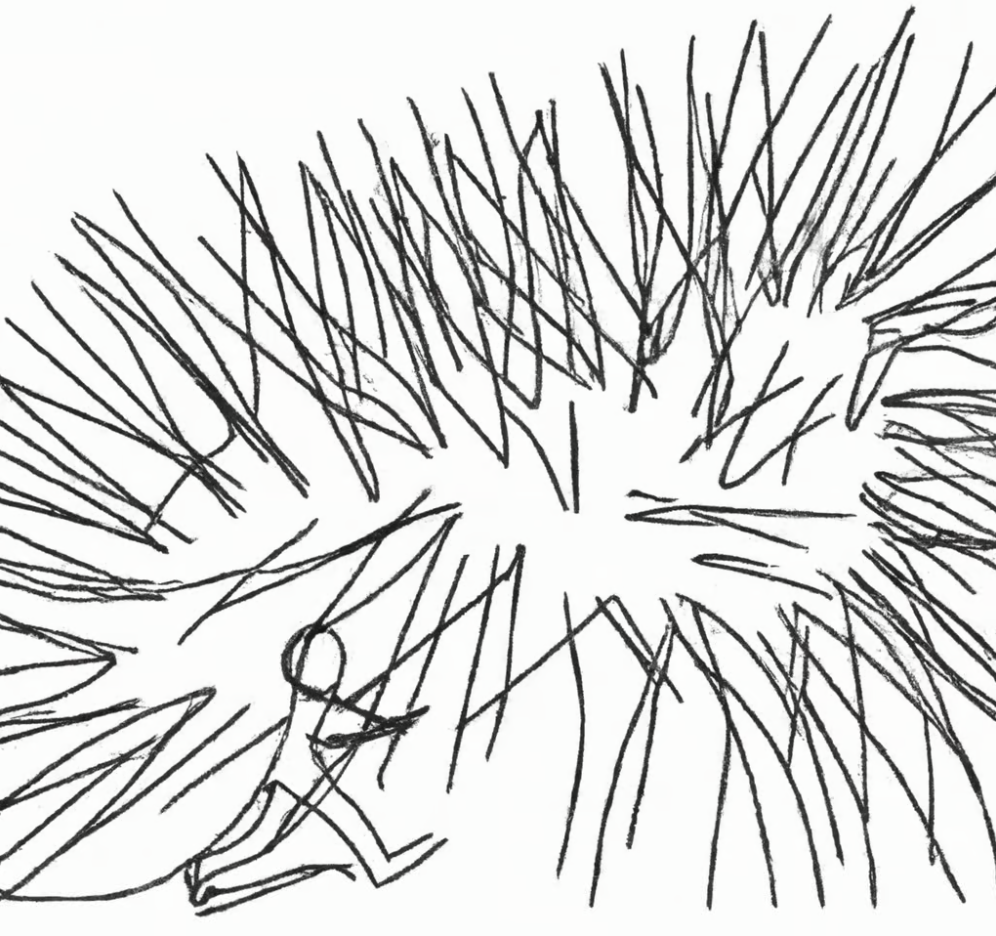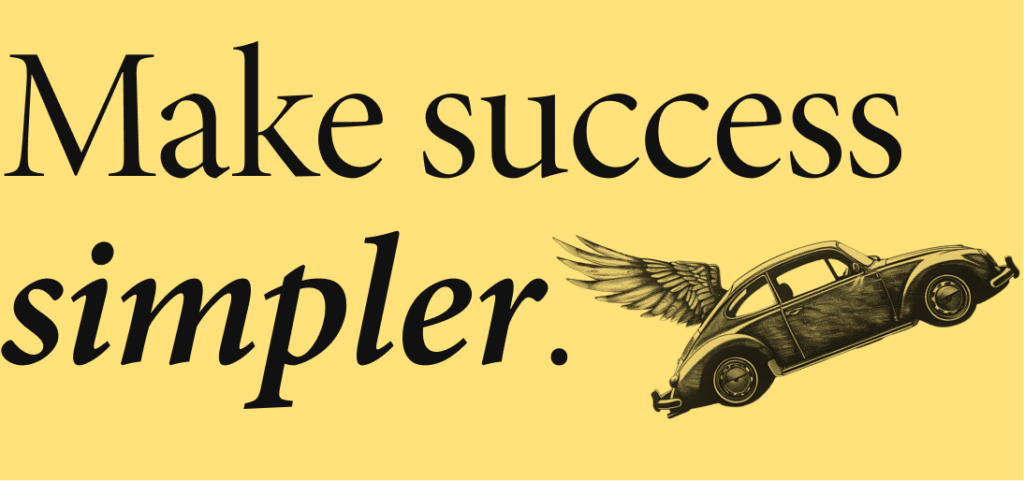Welcome to One Thing Better. Each week, the editor in chief of Entrepreneur magazine (that’s me) shares one way to be more successful and satisfied — and build a career or company you love.
Today’s one thing: A downward spiral
That one thing, better: A series of reactions

Something bad has happened. Now you’re imagining the worst.
You see the dominoes falling — one bad event triggering the next, then the next, until you’re in full-blown crisis. Career destroyed! Life ruined!
Today, I want to stop your panic and put this terrible event in perspective.
Because here’s the thing: Life is not linear. Life is reactive.
And if you can appreciate that, you’re on the road to something better.
I’ll explain what that means — but first, I’ll tell you about the truly worst thing that’s ever happened to me, and how it also became one of the best.
My nightmare.
I almost never talk about this in public, but here it goes:
In 2015, I was sued.
It was a totally bogus, absurd lawsuit. But if you know anything about the court system, you also know: That doesn’t matter. Anyone can sue for anything in America, which means lawyers and endless costs and incredible stress.
I lost so much sleep. I had no appetite. I imagined my family being bankrupt.
There’s never a good time for this, but 2015 was an especially precarious time. My wife and I had just had our first baby, and I’d just left a magazine job and planned to launch a freelance career. I’d lined up some cool projects, including freelance editing at Entrepreneur magazine, but the lawsuit put my finances in jeopardy. I needed stability.
That’s why I joined the staff at Entrepreneur. Nine months later, the magazine’s editor in chief left. I took over as interim editor in chief, proved myself, and got the job — and that transformed my life and birthed a constellation of opportunities, including this newsletter you’re reading now.
So what is this? It is not a story about linear progression.
It is a story about reaction.
Let’s break that down.
Linear vs. Reaction
We often assume that our lives are linear — that growth is steady and incremental, and that careers and relationships form in neat, straight lines. But this also means we believe that bad things create more bad things, in a clear and downward path.
Had I not been sued, a linear story could have looked like this: I left my magazine job, became a freelance writer, ghost-wrote a celebrity memoir (which I’d been contracted to do at the time), then wrote more of them, then became a career ghost-writer.
Once I was sued, a linear story could have looked like this: I was sued, it drained my family’s finances, the stress led to a divorce, I struggled to make ends meet, the end.
Meet professionals like you! Join my community.
But life is not linear. That’s because, at every step of a linear story, we can REACT — to do something that might not have seemed obvious before, but that now feels logical and clear.
This is the governing force of our world, and our lives. Global tragedies lead to peace accords. A messy breakup leads to self-discovery. We are here, because we were there.
Here’s another way of thinking about this…
Good vs. Bad
I was talking recently with my friends Kelly and Peter. She holds a high-up position at Google. He’s building a startup. Like anyone, their work comes with highs and lows — which is why I was telling them about my “linear vs. reaction” idea.
They said they think similarly, but they use different language for it. Whenever something bad happens, they tell themselves this:
“Who knows if this is good or bad.”
Yes! That’s what long-term thinking sounds like! When you say “who knows if this is good or bad,” you’re putting the bad thing into context — even as the context hasn’t happened yet. You’re operating on faith that this isn’t the end of the story.
I mean, consider it: If something bad happens today, and your life ends tomorrow, then the bad thing was definitively bad. It only had a negative impact.
But if something bad happens today, and you live another 50 years, then that’s a lot of time for the bad thing to play out. You will react to it, and that reaction can create incredible growth, and then the bad thing will have had a good outcome.
This also creates a great mission statement: If a good outcome is possible, what does it take to get there? This becomes your path forward. You cannot erase the bad thing from happening, but you certainly can help shape the reactions that come next.
Now, let’s be clear…
None of this makes “bad” feel better.
If something bad recently happened to you, spend a moment wallowing in that unfairness. Bad things suck. They hurt. They feel like someone scooped your innards out with a spoon, and you should take the time you need to mourn, to be furious, to pound a desk or stomp your feet or just ARHHHGHHHHHHH.
None of what I have written will or even should erase those feelings. Loss is loss. Bad is bad. And bad will always be bad, even if good comes from it.
That lawsuit I faced, for example? It was bad. Villainous. I’m still angry about it nine years later, and I’ll always be angry about it, and I’ll always hate everyone involved with a vicious fury that still makes me see red even as I write these words.
But over time, I learned that the lawsuit did not take away my ability to react. To do something. To escape a linear downfall and reclaim my life, piece by piece, until the thing I built had nothing to do with the lawsuit at all — a chain reaction of reactions, each increasingly controlled by me, until I had created good. The lawsuit also rallied people to me, especially my family, which showed me how incredibly strong my foundation was.
The phrase “everything happens for a reason” never felt good to me — because, like, what’s the reason? I’m not a believer in fate. And I don’t like sitting around, waiting for things to be revealed.
But I am a believer in me. And in you. Because right now, if something bad happened, you do not actually know if it leads to good or bad. There’s still time — not to find an answer, but to create one.
That’s how to do one thing better.
